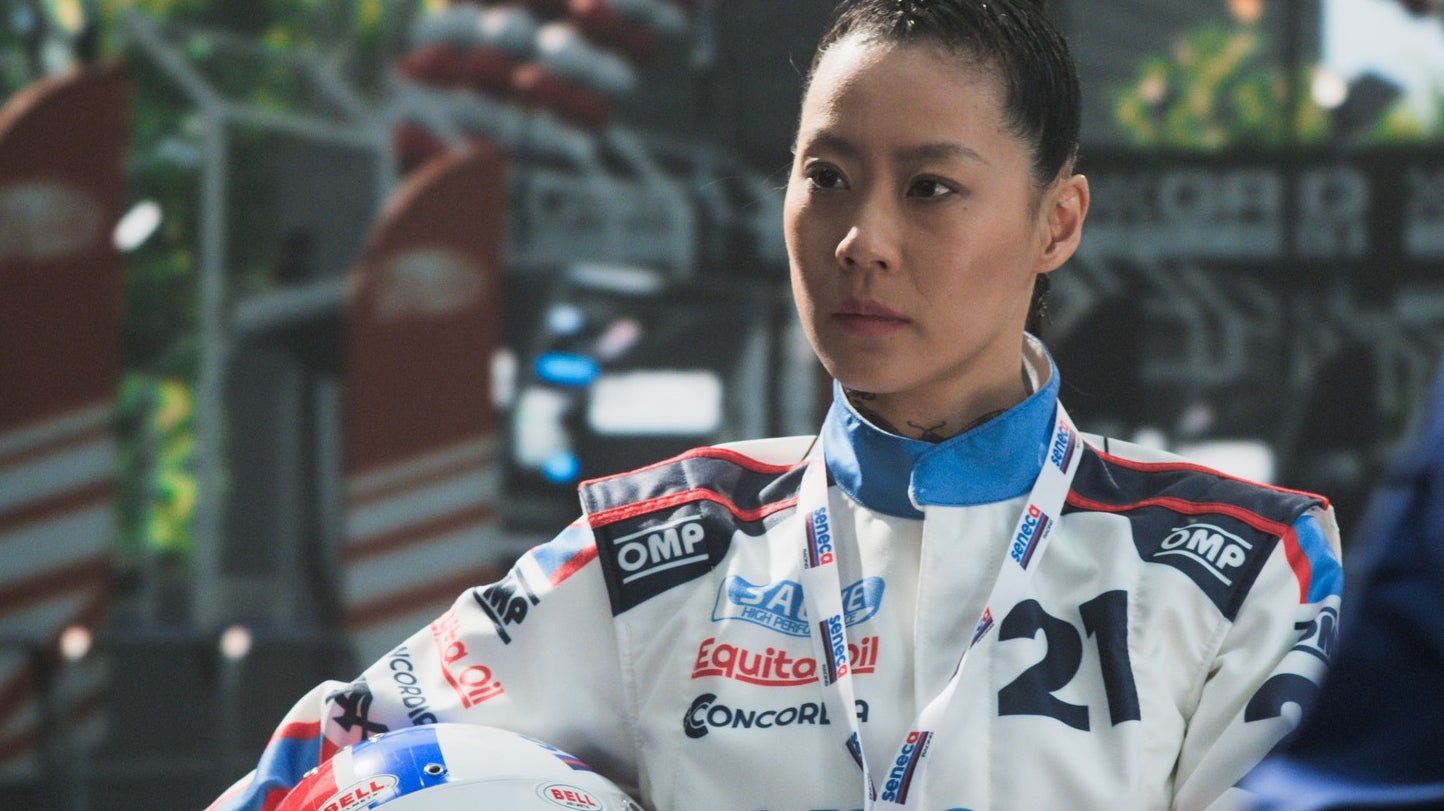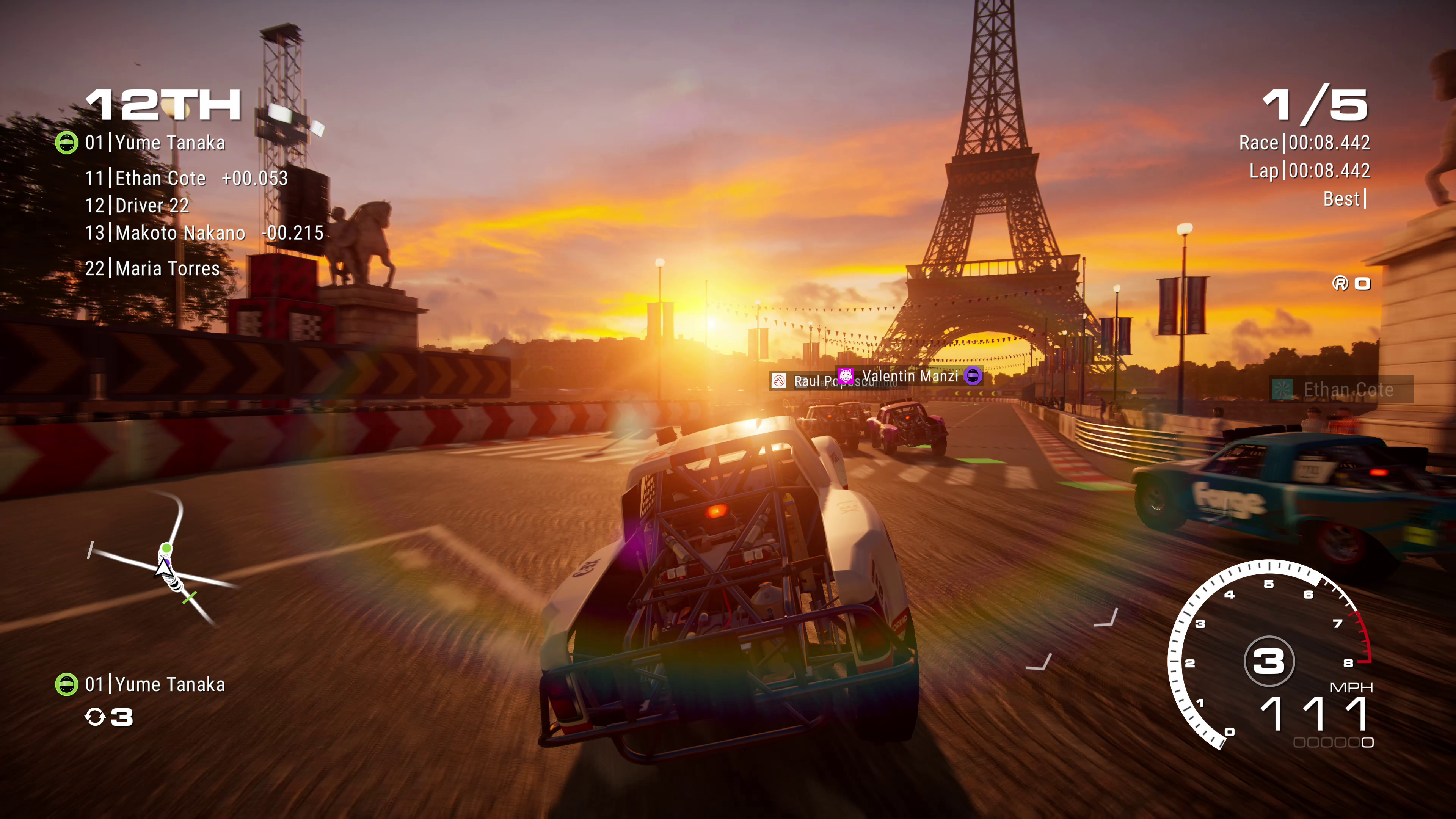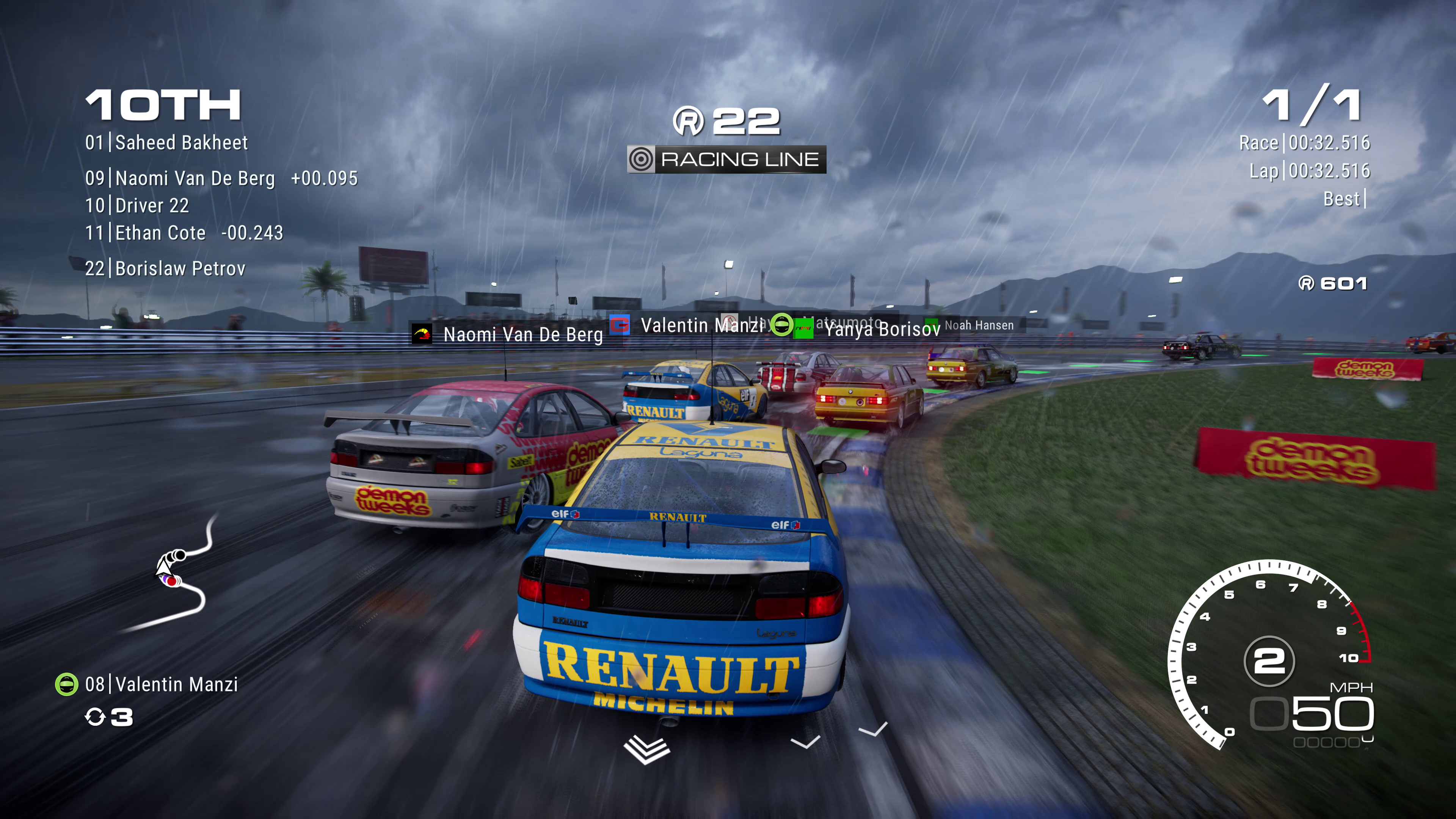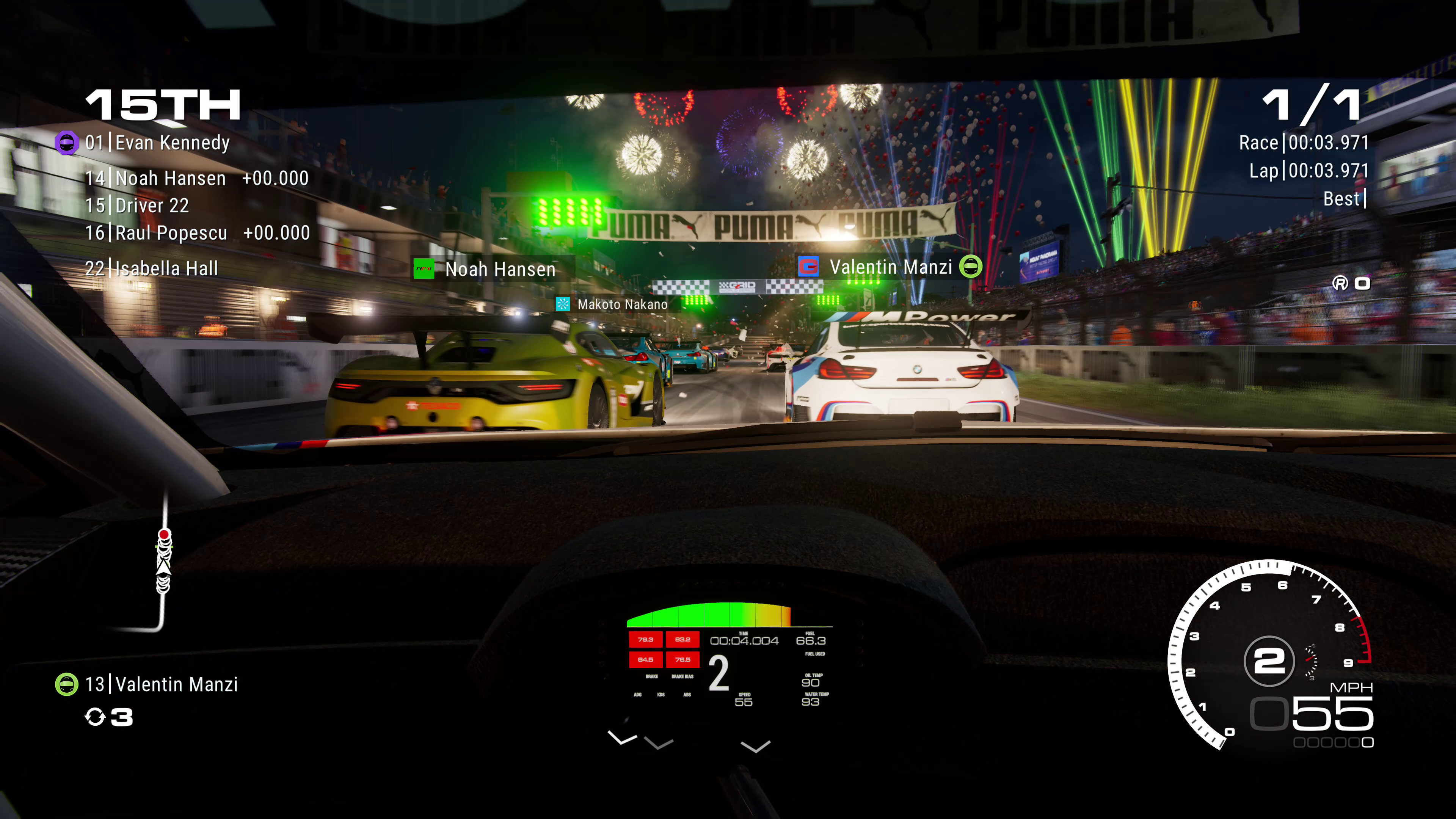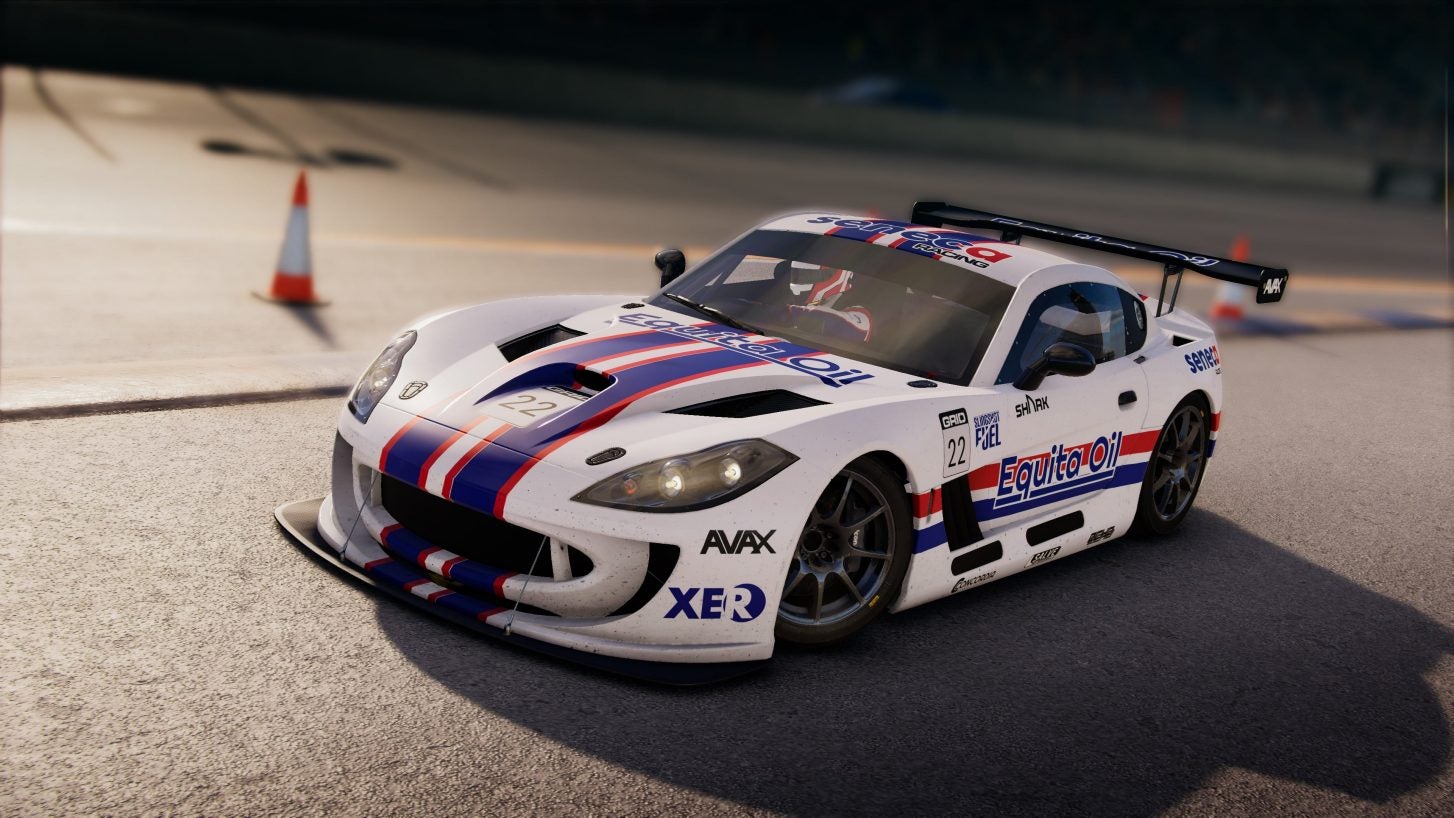Unlike Gran Turismo 7, which has clung to a successful formula and recognisable aesthetic for its full quarter century, Grid Legends is barely recognisable as a sequel to 1997’s TOCA Touring Car Championship, the game at the root of its lineage. And while describing this as a TOCA game is a bit like claiming that the latest Mercedes Formula One challenger is actually a silver Tyrrell, fire up a race in its Classic Touring Car class behind the wheel of a yellow and blue Renault Laguna and the spirit lives on. It’d be a serious stretch to describe the EA Sportsified Grid Legends as the FIFA of motorsport games, not least because it gives officially licensed championships a wide berth, but the game takes a similarly maximalist approach to racing. Its healthy selection of cars is cannily distributed across a multitude of classes and disciplines, ensuring there’s almost always at least a couple of evenly matched but independently characterful vehicles to pit against each other. There’s significant duplication from 2019’s series reboot, but the few additions are at least wilder and more specialised than that game’s slightly more conservative platter. Stadium Super Trucks pitch and lean into corners on blancmange-like suspension, requiring a unique cornering technique, while the new electric racers feature a Formula E style boost zone, offering a shove that’s closer to hyperspace than horsepower. It’s all underpinned by a handling model that is intuitive and authentic without being slavishly realistic. Each car handles exactly as you’d imagine it to in your idle racing driver fantasies rather than in accordance with anything as tedious as the laws of physics. It’s like instead of consulting an engineer, they consulted an 11-year-old. Clearly, despite the presence of real world racing machinery, this isn’t a simulation, but I happen to be quite fond of the Grid series’ dramatic, kinetic brand of arcade racing. Its pleasingly fallible AI are prone to accidentally throwing it off the circuit under pressure and the Nemesis system returns, ensuring there are consequences to using an AI driver as a cornering aid. And by consequences I mean finishing the race with a car that looks like it was rejected as a prop in Mad Max: Fury Road for looking too tatty. Unfortunately the theme of duplication does apply to the track list as well as the cars. You’d expect many of the previous game’s circuits to make an appearance, sure, but some of the ’new’ additions are recycled from even further back in the series’ history. Chicago, Dubai and Paris, for example, are spit-shined versions of the same locations we raced to death in the original Grid sequel’s torturous, strung-out career mode. In better news, the genuinely new locations, London, Moscow and a sweeping mountain route called Strada Alpina are beautifully realised and expertly laid out. Grid Legends is also a remarkably handsome game too, albeit with a focus on atmosphere rather than outright fidelity. Hustling your car through one of the densely decorated city tracks that have become a series hallmark during a hazy sunset is hugely evocative and each location has a strong, identifiable character of its own. The headline feature of Grid Legends is likely the one you’ll ultimately spend the least time with, Story Mode, a novel narrative offering that utilises the same virtual set technology that powered everyone’s favourite space babysitting drama The Mandalorian. Grid Legends places real actors in the virtual paddock to create a fictional documentary series in a format that isn’t so much borrowed from Netflix’s Formula One: Drive To Survive as it is lifted wholesale. It’s even called Driven To Glory, which sounds like someone just slightly rearranged the fridge poetry. The interstitial cutscenes are occasionally corny, but the naturalistic quality of the writing and performances is actually far more impressive than you’d usually expect from an FMV game, particularly if you grew up in the 1990s. Sex Education’s Ncuti Gatwa makes for an affable adversary in the role of Valentin Manzi and Natsumi Koroda is convincingly steely as Yume Tanaka but the show is stolen by effortlessly unpleasant antagonist Nathan McKane, played to punchable perfection by actor Callum McGowen. Most importantly, these cutscenes add vital context to and continuity between each of the events you play, something so often missing from racing games. You’re constantly looking ahead to the next named character as you carve your way through the field and you’ll celebrate that little bit more when you stick a move on pantomime villain Nathan McKane. What’s more, the events of the story feed directly into the Nemesis system, meaning you’ll have to consider overtakes on bitter rivals that bit more carefully, lest you get unceremoniously punted into the nearest tyre wall. The Story Mode is so well executed that it makes the - absolutely necessary - separate career mode feel dry by comparison. Whereas you’ll be finished with the kitchen sink drama after a handful of hours, the real legwork of unlocking cars is performed in the lengthier but more conventionally structured career mode. You really feel the lack of continuity between events after the breathless soap opera of Driven to Glory, but to its credit career mode does tread the fine line between satisfying progression and the freedom to hop between disciplines at will. And once you’ve exhausted - no pun intended - the career, there’s an enormously flexible ‘race creator’ exhibition mode. This gives you absolute control over the game’s entire toolkit, allowing you to bundle all manner of mismatched vehicles on track at the same time, add ramps and boost zones and then set the entire thing during a midnight thunderstorm. Entertaining in single player, but an absolute gift for knockabout multiplayer fun. Taken in isolation Grid Legends is a generous and varied package, with a wealth of content and options. The problem is that returning players who already strip-mined the 2019 Grid reboot will have to scrutinise the car and track lists and ask serious questions about whether there’s enough here to justify another outlay. For everyone else, this is an arcade circuit racing game without the pretensions. A racing game that trades on authenticity, but ultimately puts fun above all else. Back in 1997, with TOCA Touring Car Championship, Codemasters’ goal was to use the relatively fresh 3D capabilities of the PlayStation to attempt to recreate motorsport as accurately and authentically as possible. Grid Legends differs in that it doesn’t reflect the world of motorsport as it is, it reflects how we all wish it could be. That means reliably bombastic, spectacular racing, a diverse cast of larger than life characters and a complete absence of boring practical concerns. In reality, you would never find a race between 1000hp 1970s sportscars and comically huge racing trucks at night, in the snow, during a fireworks and laser show. More’s the pity…
